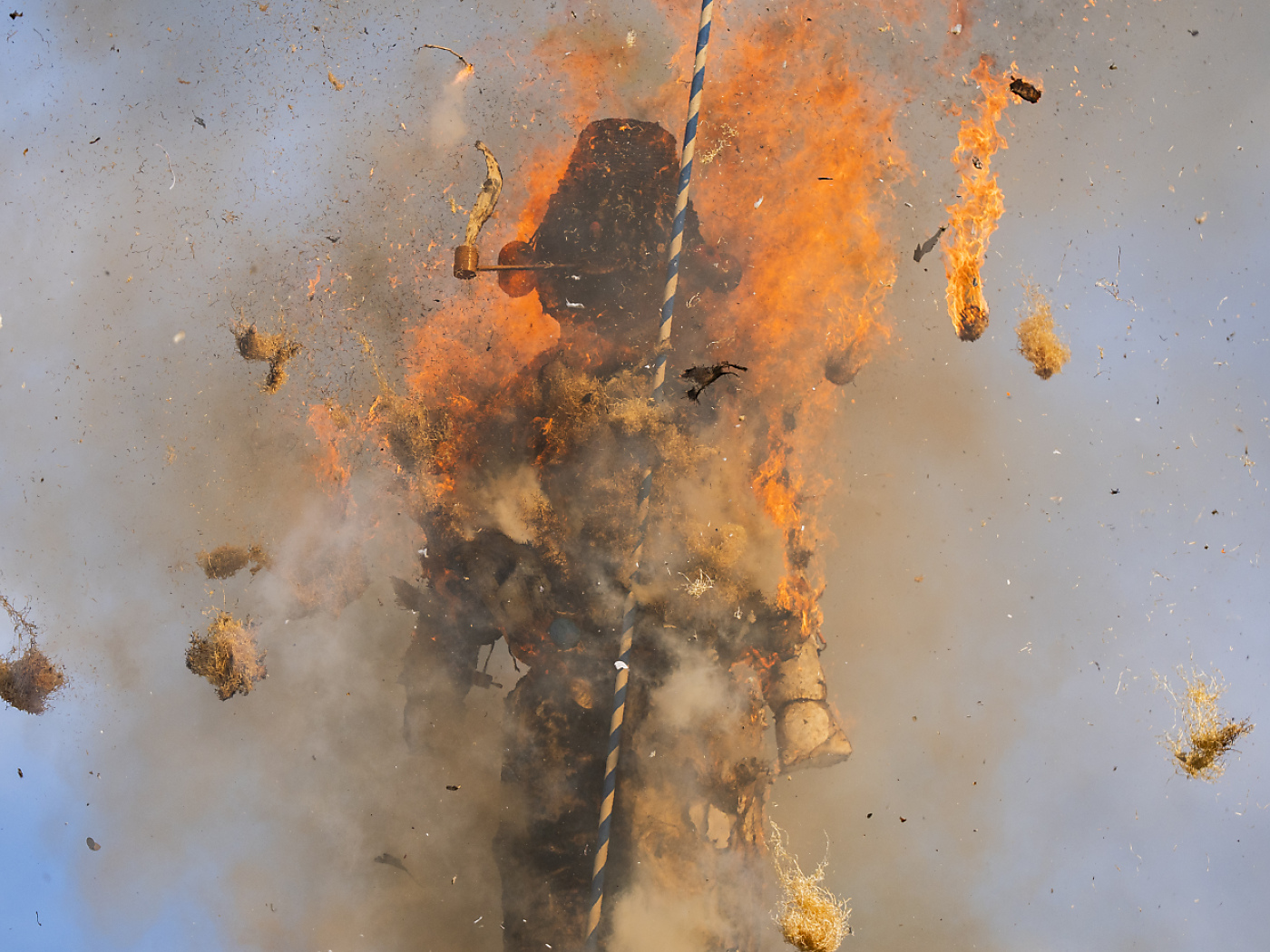
Average summer: Zurich Böögg explodes after 26 minutes

This summer will be average in Switzerland – at least if you believe the predictive power of the Böögg. The cotton snowman exploded 26 minutes and 30 seconds after the fire was lit on Sechseläutenplatz on Monday evening.
+Get the most important news from Switzerland in your inbox
According to myth, the faster the Böögg head explodes, the hotter the summer will be. In 2003, the head took just five minutes and 42 seconds to explode, and the summer was a scorcher. This was “pure chance”, according to MeteoSwiss, which considers the Böögg to be “a very poor prognosticator”.
MeteoSwiss compared the lifespan of the Zurich winter man with summer temperatures on the Swiss Plateau from 1965 to 2019. The statistical analysis “shows no correlation between the burning time of the Böögg and the summer temperature”, according to the Federal Office of Meteorology.
The Böögg’s record longevity, set in 2023, is 57 minutes. The previous record, 43 minutes and 34 seconds, was set in 2017.

More
The Böögg, Switzerland’s exploding psychic snowman
Four federal councillors
On Monday afternoon the guilds paraded through the streets of Zurich. Among the hundred or so guests of honour from the guilds were Federal Councillors Guy Parmelin, Albert Rösti, Martin Pfister and Ignazio Cassis. Canton Zug is this year’s guest of honour.
In 2024 strong gusts of wind prevented the Böögg from being set alight. This was the first time that he could not be burnt due to the weather conditions. He was finally burnt on June 22 in Heiden, canton Appenzell Outer Rhodes.
In 2020, the Sechseläuten festival was cancelled due to the pandemic. In 2021, again because of Covid, the Böögg was burnt in the Schöllenen gorges in canton Uri, near the Devil’s Bridge.
The people of Zurich have been celebrating Sechseläuten for centuries. Its name means “six o’clock sounds”. In early spring, the cathedral bells used to announce the end of work at 6pm, rather than at 5pm as in winter. The Sechseläuten is organised by craft guilds.
Translated from French by DeepL/ts
How we work
We select the most relevant news for an international audience and use automatic translation tools such as DeepL to translate them into English. A journalist then briefly reviews the translation for clarity and accuracy before publication. Providing you with automatically translated news gives us the time to write more in-depth articles. The news stories we select have been written and carefully fact-checked by an external editorial team from news agencies such as Bloomberg or Keystone.
Did you find this explanation helpful? Please fill out the short survey below to help us understand your needs.

In compliance with the JTI standards
More: SWI swissinfo.ch certified by the Journalism Trust Initiative


















![The four-metre-long painting "Sonntag der Bergbauern" [Sunday of the Mountain Farmers, 1923-24/26] had to be removed by a crane from the German Chancellery in Berlin for the exhibition in Bern.](https://www.swissinfo.ch/content/wp-content/uploads/sites/13/2025/12/01_Pressebild_KirchnerxKirchner.jpg?ver=1ea8acae)










You can find an overview of ongoing debates with our journalists here . Please join us!
If you want to start a conversation about a topic raised in this article or want to report factual errors, email us at english@swissinfo.ch.